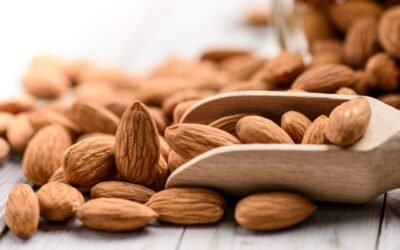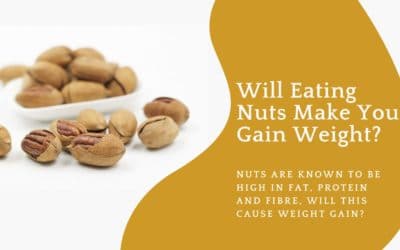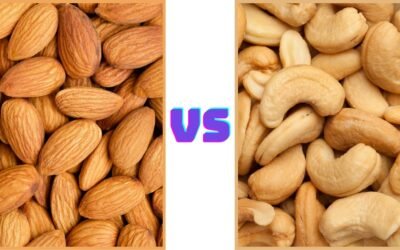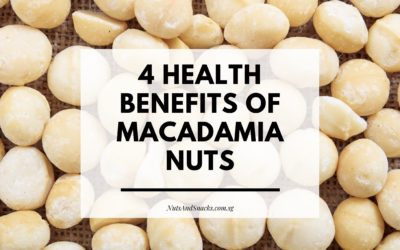
As the pandemic rages on, many have turned to exercise as a way of passing the time. Be it an indoor workout, cycling, yoga, etc. all athletes, from the amateur to pro, can benefit from adding nuts to their diet. Here are some reasons why, and which nuts you can include in your diet
Why consume nuts before and after your workouts?
The main benefit of consuming nuts is the high amount of protein and healthy fats within them. Think of these nuts as the fuel upon which a car runs. Without the proteins and fats from nuts, your workouts will not be as effective as they can be.
Nuts also have a low Glycemic Index (GI), which means that they are able to level out the rate at which the body releases glucose. Regulating the blood sugar in your body will ensure that you have sufficient energy to last the entirety of your workout.
Furthermore, nuts are easier to digest and do not upset the stomach. No more nasty tummy aches from undigested food! Nuts also have anti-inflammatory properties which help to boost bone health, the key to great performance for every athlete. Lastly, nuts also boost good cholesterol while lowering bad cholesterol, making them good for your heart health.
Nuts can also be consumed in a variety of ways. You can have them whole, mixed with other snacks and dehydrated fruit, in salads and muesli bars or as nut butter to suit every palette. However, not all nuts are made equal! Different nuts have different benefits, so choose the one that fits your lifestyle and activity the best.
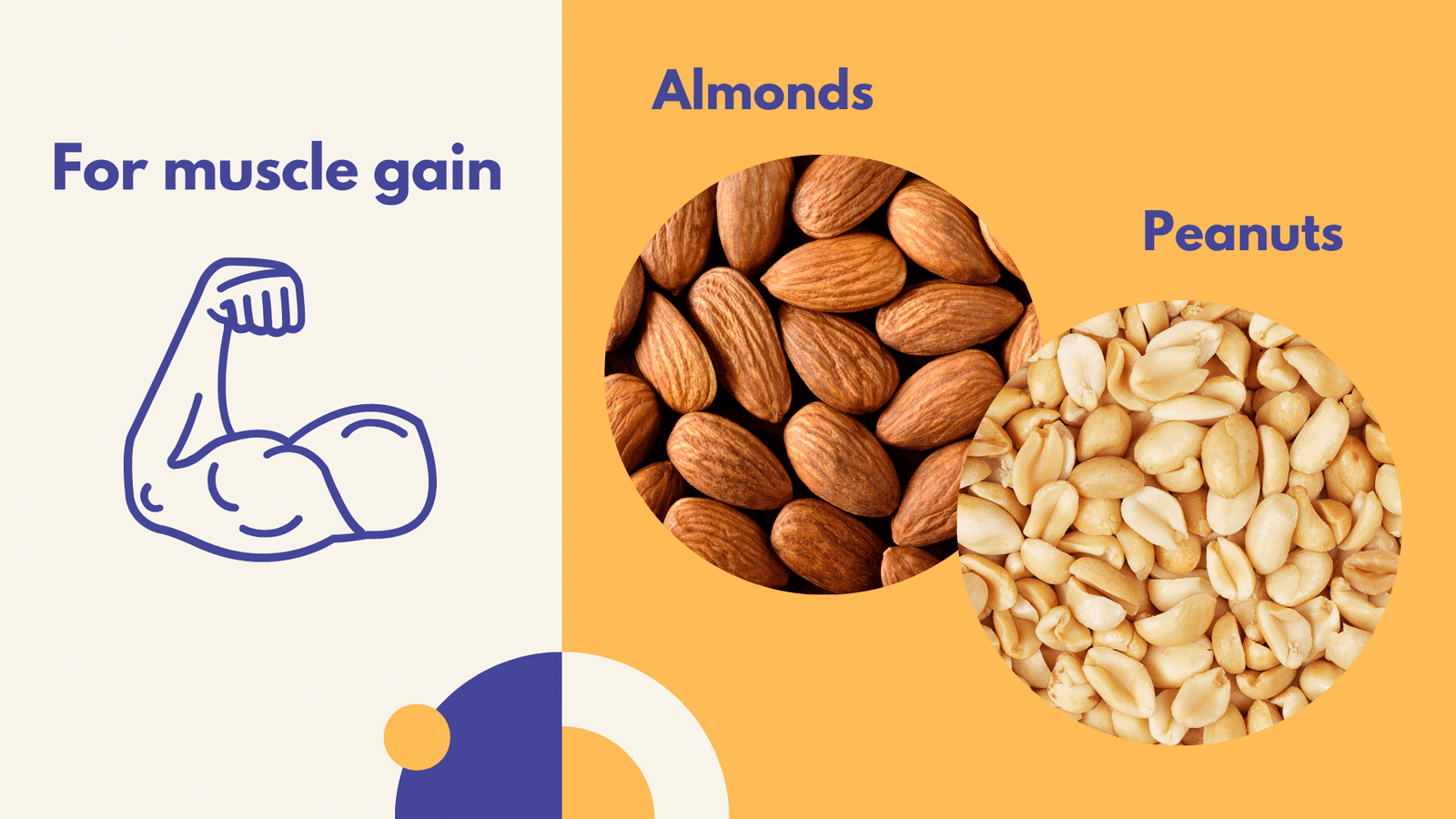
For muscle gain and bodybuilding
A variety of nuts, such as almonds and peanuts are best. Almonds are high in protein and fiber which is crucial in gaining muscle mass. In addition, the monounsaturated fat, vitamin E, and magnesium content of almonds promote heart health.
Peanuts are also a superb source of monounsaturated fat, which can support testosterone levels. They are also packed with more protein than other conventional nuts. Furthermore, peanuts are low in carbohydrates, making the peanut one of the healthier, more beneficial nuts you can eat. Lastly, peanuts are also one of the best bodybuilding snacks, as they are an excellent source of monounsaturated fat, which can support testosterone levels, boosting muscle development.
Almonds, nutritional facts per ounce
- Calories: 164
- Protein: 6 grams
- Carbs: 6 grams
- Fat: 14 grams
- Fiber: 3 grams
Peanuts, nutritional facts per ounce
- Calories: 164
- Protein: 7 grams
- Carbs: 5 grams
- Fat: 14 grams
- Fiber: 2 grams
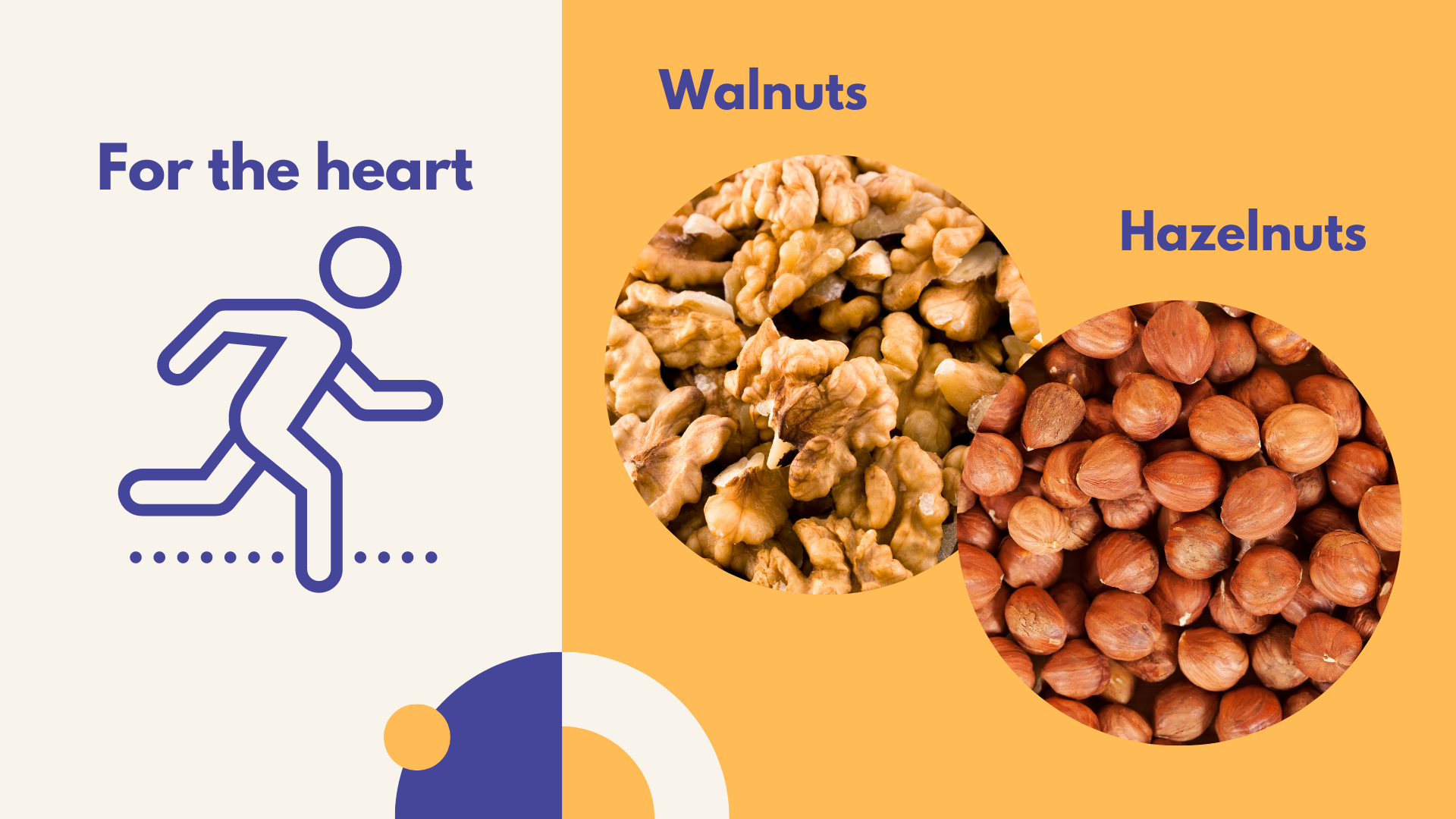
For cardiovascular workouts that work the heart
Walnuts are the prime snack for those who engage in cardiovascular workouts that get the heart pumping. Walnuts are chock full of Omega-3 fats. These help to reduce inflammation by producing natural anti-inflammatory compounds that can help your tired muscles and body recuperate even after the most strenuous of workouts. They can also help reduce post-workout muscle soreness and aches, a common complaint of many athletes and sportsmen.
Not a fan of walnuts? Hazelnuts can also do the trick. Hazelnuts contain high levels of folate, a type of Vitamin B that boosts red blood cell formation and for healthy cell growth. Good news! Expectant mothers may also benefit from consuming more hazelnuts as it reduces birth defects. Comparatively, hazelnuts also contain moderate levels of potassium, calcium, and magnesium. Potassium works to balance the fluids and electrolyte levels in your body. Calcium is commonly known to aid in the strengthening of bones. Lastly, magnesium also helps to turn food into energy that you need to power through your run. A wonderful trifecta of important minerals to meet your sporting needs!
Walnuts, nutritional facts per ounce
- Calories: 185
- Protein: 4 grams
- Carbs: 4 grams
- Fat: 19 grams
- Fiber: 2 grams
Hazelnuts, nutritional facts per ounce
- Calories: 176
- Protein: 4.2 grams
- Carbs: 4.7 grams
- Fat: 17 grams
- Fiber: 2.7 grams
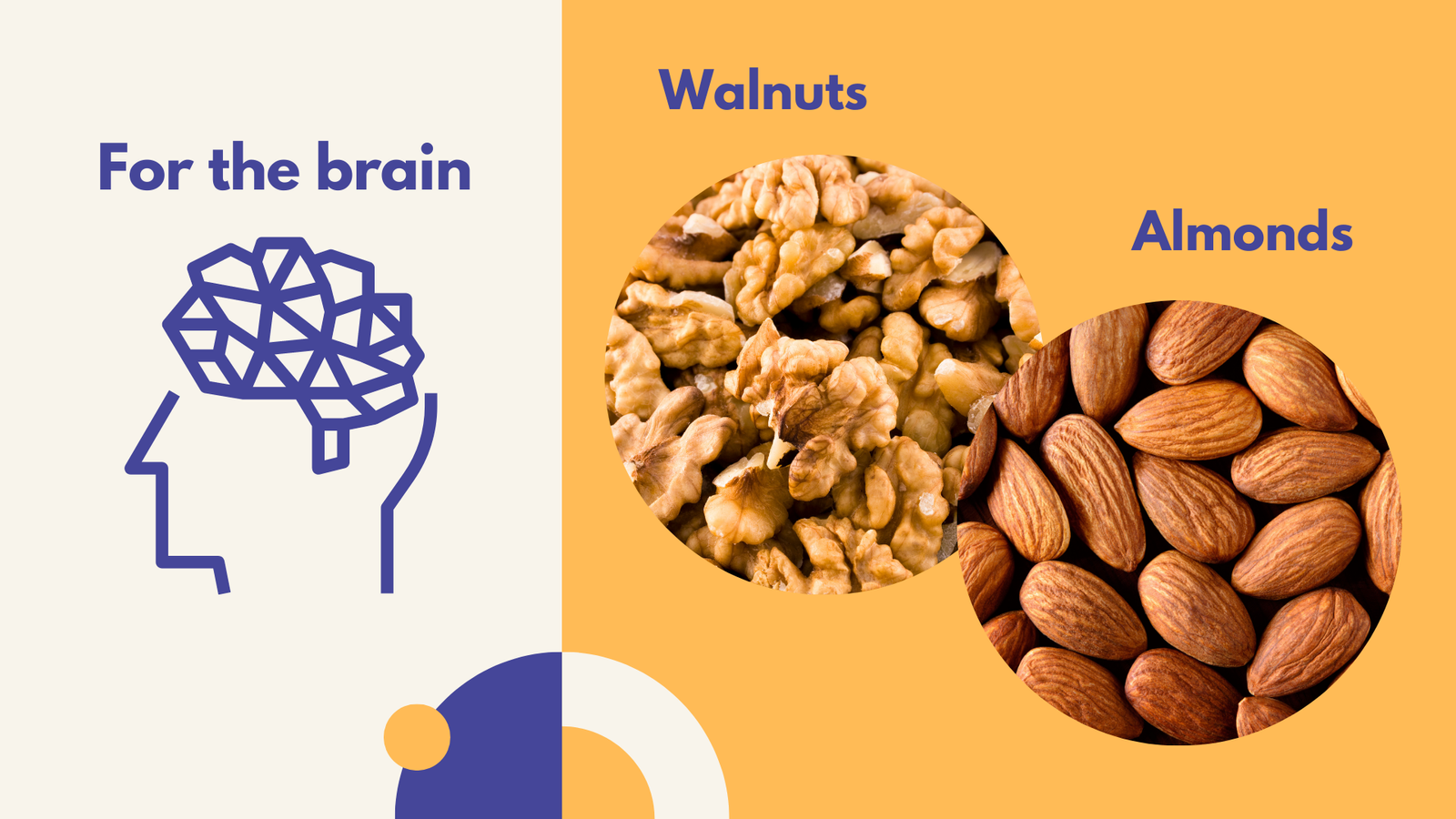
Workout for the brain
After a long day of work, your brain needs its fuel too. Fortunately for us, there are also nuts to help boost brain function. Most nuts, in general, help to keep the brain healthy, improves memory, and slows mental decline. Walnuts are especially good for your brain, especially since they also deliver omega-3 fatty acids. Omega-3 fatty acids really pack a punch and are good for heart health and to improve the skin’s condition as well.
Almonds contain a high concentration of Vitamin E, which research shows could reduce cognitive decline. It is an antioxidant that has shown to decrease the advancement of Alzheimer’s and can also tackle a variety of other health issues such as heart disease and stroke.
Almonds, nutritional facts per ounce
- Calories: 164
- Protein: 6 grams
- Carbs: 6 grams
- Fat: 14 grams
- Fiber: 3 grams
Walnuts, nutritional facts per ounce
- Calories: 185
- Protein: 4 grams
- Carbs: 4 grams
- Fat: 19 grams
- Fiber: 2 grams
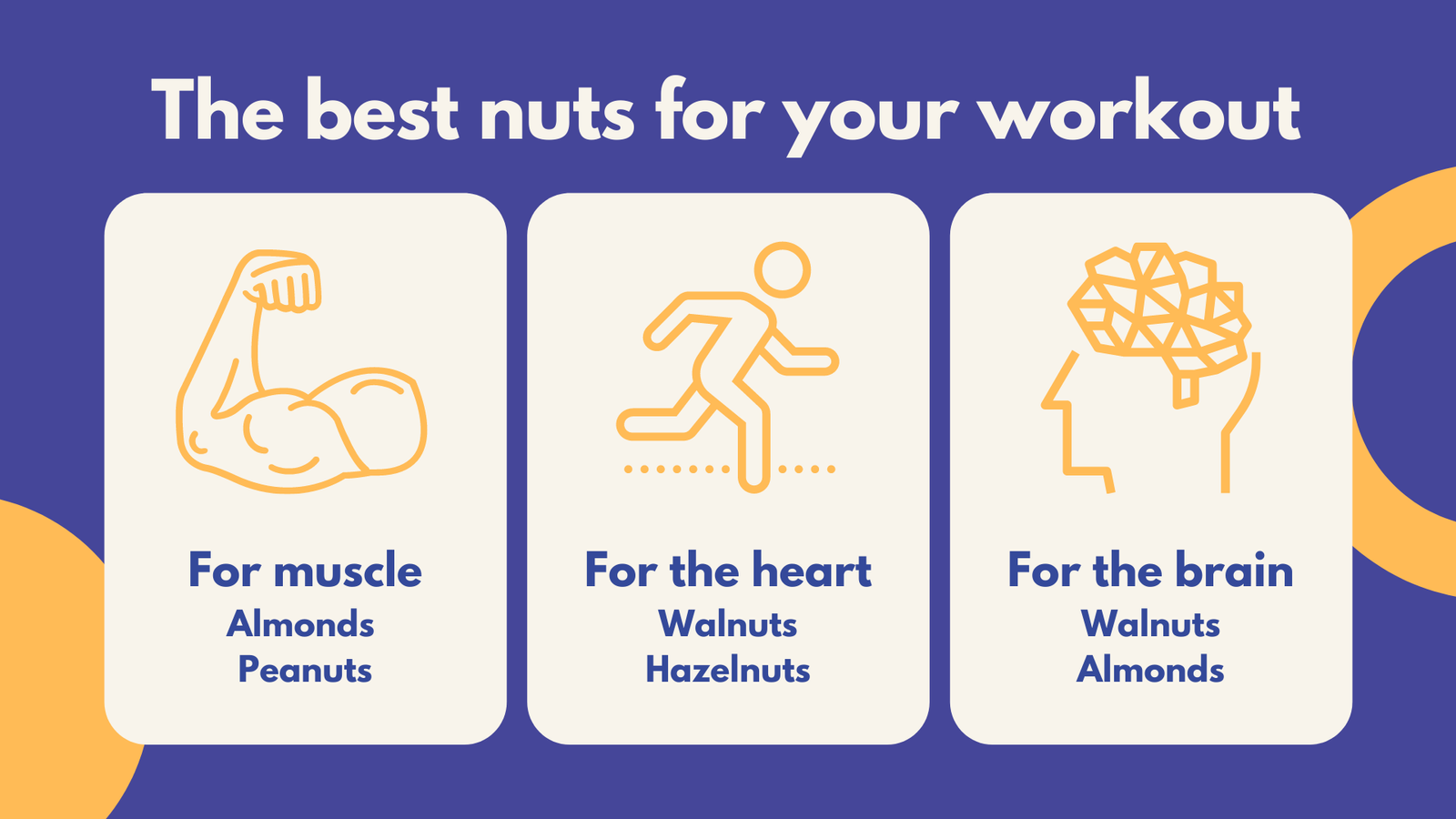
The infographic above gives you a quick rundown on the best nuts for every workout.
Ready to get the boost you need before your gym session or run? Click here to get the nuts you need.

